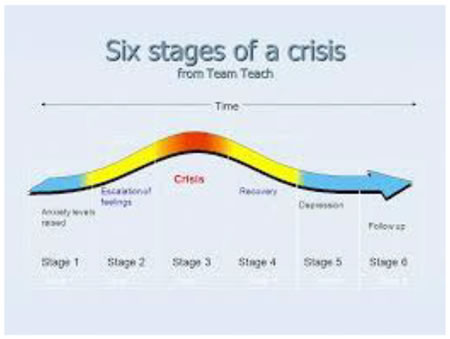Behaviour Policy
All behaviour is communication.
The aims of this policy are to underpin the commitment we have at Southgate School to high standards of behaviour
Download Behaviour Policy
Nurture is grounded in attachment theory, an area of psychology which explains the need for any person to be able to form secure and happy relationships with others. Research has shown that when nurture groups work well they make a considerable difference to the behaviour and the social skills of the pupils
who attend them. Through intensive, well-structured teaching and support, pupils learn to manage their own behaviour, to build positive relationships with adults and with other pupils and to develop strategies to help them cope with their emotions (OFSTED, 2011).
We are committed to promoting safe practice within the context of respect and dignity; the core values that underpin all our work. Our aim is for all pupils to build secure and trusting relationships with staff and their peers. This will enable them to learn the skills they need to regulate their emotions as independently as possible. Our pupils will then be able to thrive and reach their potential across all developmental aspects.
All staff are responsible for helping pupils regulate their emotions, anxiety and any resulting challenging behaviour. We will continually reflect, plan and take action to reduce pupils’ anxieties. If pupils are in crisis or display challenging behaviours all staff will manage this calmly, effectively and keep everyone safe.
In the context of positive relationships and a nurturing environment, the majority of children respond to clear boundaries and high expectations. The whole school community was involved in creating The Southgate Way, which outlines the high expectations we have of all our pupils throughout the school.
Positive behaviours are praised and rewarded to promote more positive behaviours. This is far more powerful than noticing and punishing negative behaviours.

It is necessary for staff to put a great deal of thought and energy in to developing the relationships, environment and skills needed for pupils to positively and effectively manage their emotions, anxiety and challenging behaviour. All staff base their practice on the 6 Nurture Principles (detailed above). Support in relation to developing a nurturing ethos can be gained from nurture trained and experienced staff within the school.
The primary focus is on building trusting and secure relationships with pupils. This provides the foundation for staff to be able to challenge pupils to extend their skills and knowledge in all aspects of the curriculum.
The environment needs to be carefully considered to ensure all pupils feel safe and secure in their classroom. This should include the sensory environment, structured routines and the communication environment.
All classes have structured sessions to develop communication and interaction skills, such as breakfast, structured break times and News Round. Each classroom will use and display the Zones of Regulation, to enable pupils to identify their emotions and strategies to manage them. All classes will also have daily Reflection Time to focus on the Social, Moral, Spiritual and Cultural theme for the week, as well as weekly PSHE/SRE lessons. Boxall Profiles can also be used for individual pupils to assess and plan a personalised social and emotional program.

At Southgate, we use the ‘Six Stages of a Crisis Model’ to understand the link between anxiety, crisis and challenging behaviour. Not all pupils in crisis will display challenging behaviour and some pupils may display challenging behaviour
when not in crisis.
The Challenging Behaviour Foundation state that: “Characteristically, challenging behaviour puts the safety of the person or others in some jeopardy or has a significant impact on the person’s or other people’s quality of life” (McGill, 2003).
The reasons why people may have high anxiety or display challenging behaviour will vary from person to person. Here are some possible causes:
Challenging behaviours are not generally ‘curable’ overnight. Meaningful and sustainable change can take some time and the focus should be on developing strategies for the pupil to understand and manage their emotions and anxieties. Our approach is personalised for all pupils. The aim is not to be consistent between pupils, but for all staff to be consistent in their approach to each individual.
All staff are responsible for helping pupils to regulate their emotions, anxiety and any resulting challenging behaviour. Southgate promotes a non-confrontational and low-arousal approach to managing challenging behaviour. It must be emphasised that using principles of non-confrontation is not about not doing
anything or not intervening. It is about ensuring that interventions are effective and avoid needless conflict. Pupils benefit from clear and consistent personalised boundaries or ‘non-negotiables’ that are appropriate to meet their developmental, social and emotional needs.
Southgate School provides regular Team Teach training for all staff working with pupils. The Team Teach approach focuses on de-escalating situations before physical intervention is necessary. Physical Intervention will only be used when other methods of de-escalation have been exhausted or where quick action is required (e.g. to prevent an assault).
Any Physical Intervention must be reasonable, proportionate, necessary and in the pupil’s best interest. It will always be at the lowest possible level and for the shortest possible time. Physical Intervention will be considered to:
Parents and carers will always be informed when physical intervention has been necessary unless other agreements have been made which are recorded on the positive management plan and signed. Unfortunately, on rare occasions, injuries may result from Physical Intervention (e.g. fingertip bruising).
Staff at Southgate School will always be open and honest when reporting and recording. Although we operate a ‘hands-off’ approach wherever possible, failure by staff to take reasonable, proportionate and necessary action could lead to them being held accountable.
Pupils should be reassured and supported sensitively through the recovery and depression stages of a crisis. It is likely that if too many demands are placed upon the pupil at this time it will trigger another crisis incident.
Once they are calm (this may be within an hour or the next day) a restorative activity or discussion should be carried out with the pupil by a trusted and familiar member of staff. The aim of Restorative Practice is for pupils to take responsibility for their own behaviour and learning, strengthening and repairing relationships, being inquisitive about what needs to happen to move forward and avoiding attributing blame (Thorsborne & Blood, 2013).
A traditional restorative conversation should include the following questions:
However, at Southgate School, this should be considered developmentally. This will be different for each pupil but could include the use of visual emotions cards, social stories, comic strip conversations, Zones of Regulation etc.
The class teacher is responsible for recording and reporting anxiety, crisis, challenging behaviour, physical intervention and any bullying or discriminatory behaviours.
At the end of each day, the class team will discuss each pupil’s day and reflect on the levels of anxiety, what has been communicated through behaviour and how the pupil managed this. The focus is on identifying causes and triggers and never about blaming the child. This daily reflection is recorded on Integris through the ‘Behaviour Quick Entry’. This records each pupil’s anxiety as outstanding, good, stage 1 or stage 2.
All crisis incidents should be recorded in full as a ‘Stage 3’ incident on Integris. Any physical intervention should be recorded in full as a ‘Stage 3- Physical Intervention’ incident on Integris, with the UDI form completed in full.
Other documents that may need to be completed or updated include:
See the ‘Recording Behaviour’ document in the Staff Handbook for further guidance.
Good communication with parents and carers is essential. Parents and carers must be informed of any serious incidents and physical intervention, although individual arrangements and preferences can be agreed and recorded in Positive Management Plans.
It is likely that parents and carers will also be facing similar incidents. Good relationships and being honest and open with others involved will ultimately help to learn about behaviours and enable the development of constructive plans.
Other agencies may also be involved with the pupil (e.g. Educational Psychology or CAMHS) and open communication is to be encouraged throughout.
Any incidence of bullying or discriminatory behaviour (e.g. racism, homophobia, sexism) is regarded as very serious and will never be tolerated. The parents/ carers of pupils suffering any bullying or discriminatory abuse would be informed in person or by telephone in order that they can counsel and support their child.
Parents/ carers of pupils who display bullying or discriminatory behaviour will also be informed. Follow up and restorative work will always be carried out. (See Anti-Bullying Policy for further guidance.)
Some pupils will need more personalised support to help them manage their anxiety and/or challenging behaviour. Because of the importance of secure relationships, this support is most likely to be successful when provided by familiar and trusted classroom staff.
Positive Management Plans will be completed for all pupils displaying high levels of anxiety, challenging behaviour or where physical intervention is required. Some pupils may have additional personal risk assessments. These documents will give clear guidance on approaches and strategies to support the pupil. It is the responsibility of each member of staff to read and implement the guidance.
Positive Management Plans should be written in collaboration with the pupil (wherever possible), parents/carers, staff from the school and any relevant external agencies involved with the pupil. This document will need reviewing regularly with the teaching team. If new behaviours are observed, behaviours change, or there is an episode of regular critical incidents an urgent review of the plan must be made.
It may be deemed to be necessary for reasons of safety to keep a pupil out of the classroom for a period of time following an incident. This should not be punitive but restorative and a return to class should be encouraged and carefully managed at the appropriate time.
Personalised or alternative timetables may be established to reduce anxiety levels (e.g. providing a lower stimulation environment for parts of the day) or provide a more personalised approach to learning (e.g. additional lessons on emotional regulation). These short term measures will be reviewed regularly.
Only the Head Teacher can make the decision to exclude a pupil. This will only be considered when it is deemed unsafe or disruptive for the pupil to be in school. Necessary adjustments must be made to make the environment safe for the pupil to return. A Restorative discussion should be carried out before the
pupil returns to school. Arrangements should be made for education at home if the exclusion is prolonged.